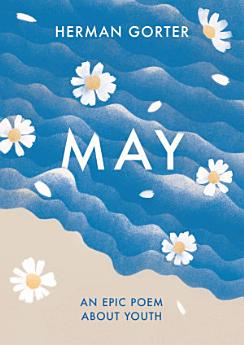May: An epic poem about youth
About this ebook
When Herman Gorter published May (Dutch: Mei) in 1889, this spontaneous and vibrant epic poem was immediately recognized by his peers as a landmark of Dutch literature. Inspired in part by John Keats' Endymion (1818), the poem touches upon a wide range of themes, including the innocence and wonder of childhood, the hubris and disillusionment of adolescence, unattainable divine love and the inevitability of transience, The work suggests that poetry itself may be the only way to preserve for eternity the essence of nature and of music. May was perhaps an inevitable product of the artistically revolutionary and highly lucid spirit in The Netherlands of the 1880s. While Gorter's contemporary, Vincent Van Gogh, had just completed the groundbreaking Sunflowers series of paintings, Gorter succeeded with May in composing his own monument of colourful and innovative power.
English-only, illustrated eBook, second (revised) edition. With foreword by Lloyd Haft and introduction by the translator, M. Kruijff. A synopsis is included.
Ratings and reviews
- Flag inappropriate
About the author
Herman Gorter (1864-1927)
Gorter was born into a simple family in a rural town in the northwestern Netherlands. His father, a pastor, died when he was only six years old. Still, Gorter received a good education, studied classical languages in Amsterdam and became a teacher at a Gymnasium.
In 1889, after three years of work on his epic poem “Mei” (“May”), Gorter finally could proclaim “the thing is done”. Mei was published in the contemporary periodical De Nieuwe Gids (“The New Guide”), a retrospection of Gorter’s youth through nature, love, idealism, disillusion and melancholic reflection. Spontaneous and full of vibrant imagery, “Mei” quickly became a landmark for the 1880 literary movement in The Netherlands, that attempted to reclaim aesthetics for the art (the “Tachtigers”).
In 1890, Gorter married the girl that stood model for “Mei”. That same year his “Verzen” was published, celebrating his spiritual and sensual experiences of these emotionally rich years. Gorter gradually distanced himself from the “Tachtigers” movement. He became increasingly politically engaged, and turned to express his Marxist ideals through his work. The metaphysical longing expressed in Book 2 of “Mei” turned out to be a prelude to his more utopian work of this time, such as Pan (1916). Like “Mei”, Gorter eventually became disillusioned about the attainability of his ideals and had to deal with recurring depressions. Love remained a key theme in Gorter’s work until his death.
See https://essentialgorter.
Translator Lloyd Haft (1946) grew up in the USA and graduated from Harvard. Graduate studies in Chinese took him to Leiden, and he has lived in The Netherlands since 1968. He soon discovered a fascination with modern Dutch poetry, starting with Herman Gorter's famous (or notorious) Verses. He became a regular translator for Poetry International and published ten volumes of his own poetry in Dutch, including a free-verse adaptation of the Psalms which won the 2004 Ida Gerhardt Prize. Professionally, for many years Lloyd Haft taught Chinese language and literature at Leiden University. Since retirement he has spent much of his time in Taiwan with his wife Katie Su, a writer on theater arts in Taiwan. His collected translations from the metaphysical poet Zhou Mengdie are scheduled for publication in 2021.




